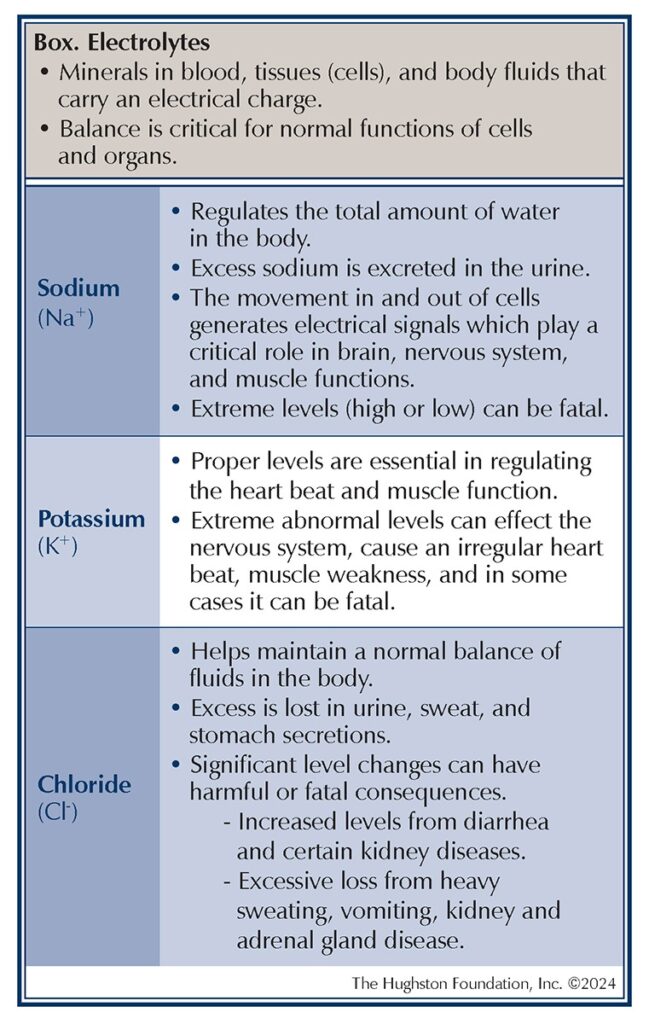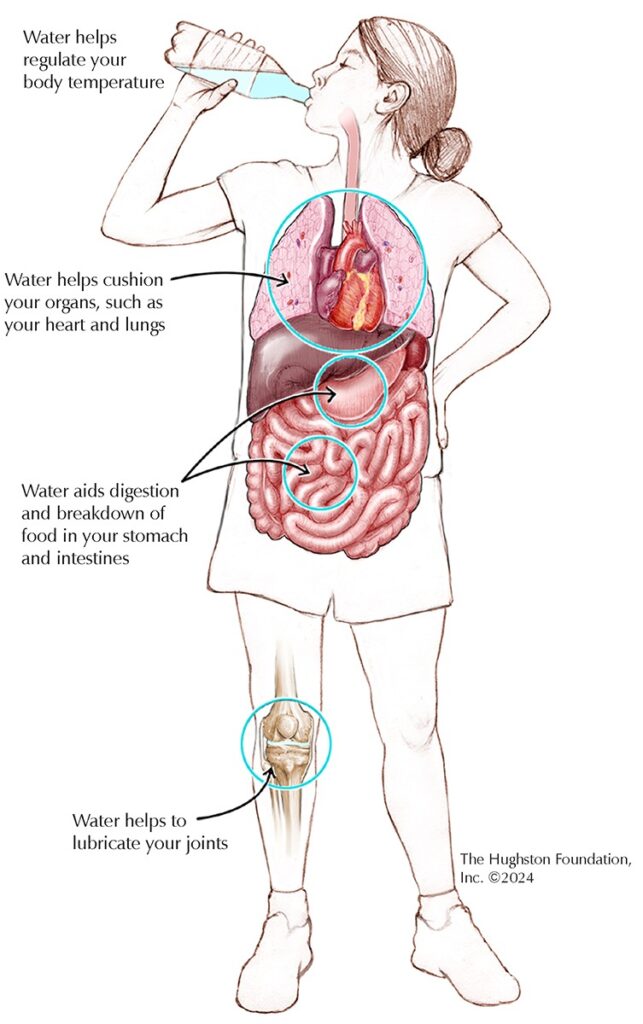
Water is essential to your health because it forms the basis of all body fluids, including blood and digestive fluids; it helps with the transport and the absorption of nutrients, and it helps eliminate waste. Dehydration can be defined simply as losing more fluids than you take in.
Illness, diarrhea, vomiting, urination, and excessive perspiration can cause dehydration because your body often expels more fluid during illness and activity. Symptoms of dehydration include a dry or sticky mouth; low or no urine output, or very dark urine; the inability to produce tears; sunken eyes; and, in severe cases, a lethargic feeling or comatose state. A person who is dehydrated can have low blood pressure or blood pressure that drops rapidly when changing from sitting to standing, a rapid heart rate, poor skin elasticity, delayed capillary refill, and shock.
 Don’t forget your electrolytes
Don’t forget your electrolytes
Electrolytes, which include sodium, potassium, chloride, sulfate and other minerals, are necessary for cellular metabolism and proper kidney, brain, and heart function (Box). To maintain a proper water and electrolyte balance, you must replace lost fluids and electrolytes. Sometimes our bodies lose too much water and electrolytes which results in dehydration. Water and electrolytes are consumed normally in food and beverages over the course of a day. A healthy body adjusts normally to the intake of water and electrolytes using hunger and thirst mechanisms. For example, a craving for salty foods can mean you need to replenish a loss of sodium. The kidney is the primary organ that adjusts to loss and intake of the minerals and fluids. Lethargy or unconsciousness, shock, confusion, dizziness, and light headiness are signs of advanced dehydration and require medical attention.
Who is at risk?
Older adults and infants are at the greatest risk for dehydration because their bodies are unable to adjust as well as an adult’s body to the loss of fluids and electrolytes. Additionally, illnesses that result in vomiting and diarrhea are more common in infants and the elderly. Athletes should also be aware of their hydration level and they should replace water lost due to sweating. Extreme perspiration, along with hot temperatures, can create a situation for the dehydrated athlete. Athletes need to drink plenty of water before, during, and after any activity. One good way athletes can monitor fluid loss and intake is by weighing themselves before an activity. After a workout, the athlete can weigh in again and then replace the weight lost during activity. Some fluids, like those that contain high amounts of caffeine, do not actually benefit the body and, sometimes, can exacerbate dehydration.
 Prevention
Prevention
Fluids should be administered as soon as possible if mild dehydration symptoms begin to show. You should drink frequently and in small amounts. Mild dehydration can cause dizziness, fatigue, and weakness. If the severity of the symptoms increases, seek medical attention immediately.
The rule of thumb is 9 glasses of water per day for females and 13 glasses of water per day for males. Drink plenty of fluids—even when you are not thirsty—to maintain hydration. Be aware of the signs and symptoms of dehydration and take a preventative approach to ensure hydration levels are within an acceptable range. Electrolytes are consumed in our every-day diet, but you should still be aware of the intake and loss of these minerals.
Author: Jessica Hess, ATC | Columbus, GA
Last edited on March 19, 2024